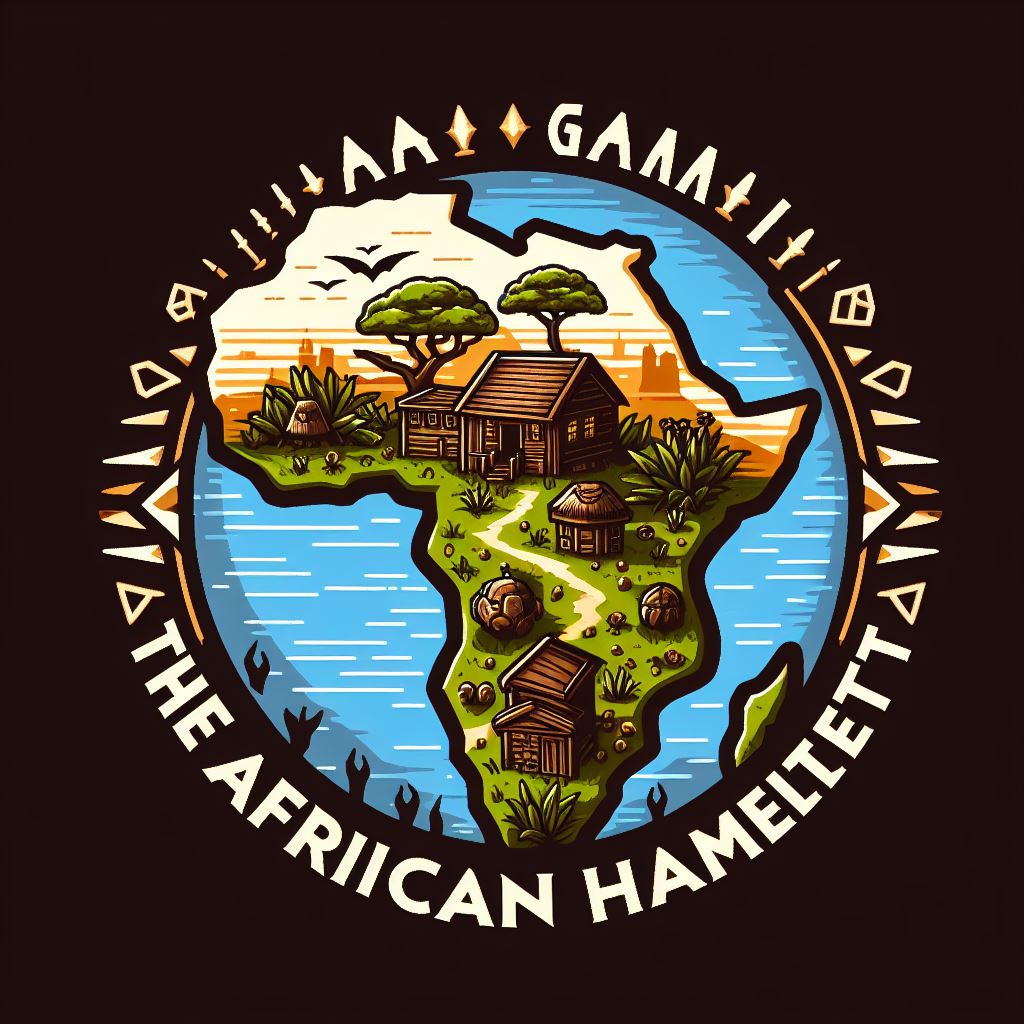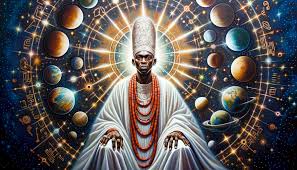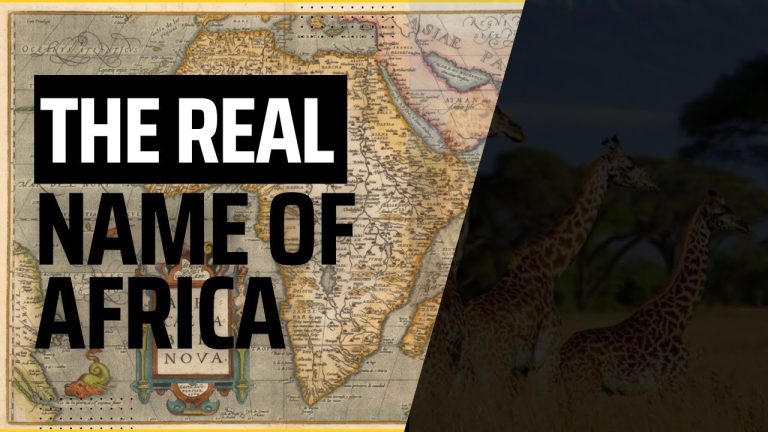The Legend of Yoruba Gods – Powers and Betrayal Through Time
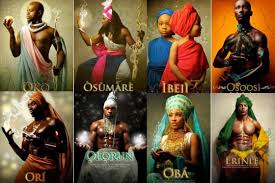
In Yoruba culture, people see a strong link between the divine and human worlds. The Yoruba gods, called Orishas, are not distant figures. They have real stories of wins, losses, and lessons learned over time. Their myths help explain the unknowns of life, nature, and the universe. This is the Legend of the Yoruba gods.
The Legend of the Yoruba gods has its origin in Ile-Ife, which the Yoruba people view as the starting point of humanity. From here, tales of creation, destruction, love, and justice spread. Let’s explore the world of these Yoruba gods, looking at where they come from and what they stand for.
Ile-Ife: The Heart of Yoruba Beliefs
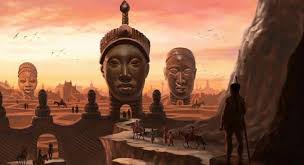
The Yoruba believe that Ile-Ife is where creation began (this is where the legend of the Yoruba gods began). It’s believed that Olodumare, the top god, assigned the Orishas to shape the world. With a golden chain and special knowledge, they came down to create rivers, mountains, and forests. This idea ties nature closely to the divine.
These gods played an active role in the world’s creation, shaping both the physical and spiritual sides of life. This tradition connects people across generations through stories and cultural practices.
Olodumare: The Main Creator
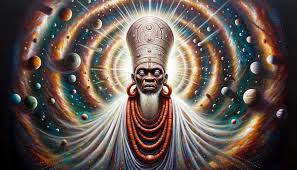
Olodumare is the key figure in Yoruba beliefs. They see this being as the all-powerful creator of the universe. However, Olodumare isn’t involved in daily life. Instead, the Orishas handle human affairs by acting as go-betweens.
This belief in Olodumare shows the need for balance, respect, and harmony. Worshippers see this deity as a source of life and energy, though they rarely worship Olodumare directly.
The Orishas: Life’s Guardians
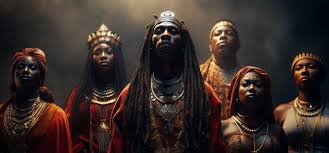
The Orishas connect the human and divine worlds. They stand for many parts of life, from nature to feelings. People honor them for their power to impact the world. Each Orisha has its own character and lessons.
For example, Ogun is the god of iron and war, symbolizing strength. Oshun, on the other hand, represents love and prosperity. They show the complexities of life and guide followers through tough times.
Obatala: The Creator of People
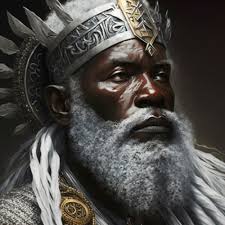
Obatala is a top Orisha, known for creating humanity. The story goes that Olodumare gave Obatala the task of making humans from clay. One time, he drank too much palm wine and made some flaws. This tale teaches the Yoruba to accept differences and imperfections.
Obatala is also seen as wise and kind. He protects all, especially those facing challenges.
Ogun: The Fighter and Innovator
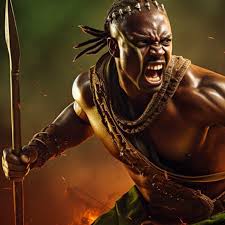
Ogun is celebrated for his strength as the god of war and metals. He clears paths and makes tools. While he can cause chaos, his work has helped people grow. Ogun shows that even destruction can lead to new paths.
In Yoruba culture, Ogun symbolizes tough times and resilience. His story reminds people to channel energy into progress.
Shango: The Mighty King
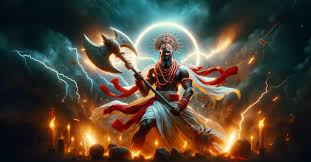
Shango’s tale is full of power and love. Once a king, his strong presence earned him a place among the Orishas after death. As the god of thunder, he’s linked to justice and protection.
Shango is a complex figure with flaws, like a fiery personality. His storms remind people that he watches over them.
Yemoja: The Mother of All Orishas
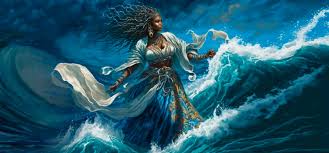
Yemoja, the goddess of rivers and motherhood, is loved for her caring nature. As the mother of all Orishas, she stands for fertility and healing. Her waters are said to cleanse and refresh both body and spirit.
Her role emphasizes community and care for others. Yemoja inspires followers to cherish kindness and the connections in life.
Oshun: The Goddess of Love
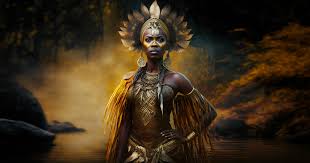
Oshun represents beauty, love, and prosperity. Often described as radiant, her charm can tackle any problem. However, her tears can bring misfortune, showing a balance between happiness and sadness.
Her stories teach about resilience, highlighting how love and kindness help through tough times.
Esu: The Trickster Messenger
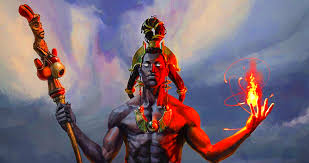
Esu stands as the tricky messenger among the Orishas. Positioned at crossroads, he’s in charge of choices. His unpredictable nature teaches lessons about caution and wisdom.
Esu’s role remains important in Yoruba beliefs, ensuring ongoing communication between people and the divine. His tales serve as reminders about decision-making and responsibility.
The Legacy of Yoruba Beliefs
The legends of the Yoruba gods are not just old stories. They shape modern cultures around the world, from African religions like Santería to popular art. These tales show the lasting power of storytelling in keeping identity alive.
As time goes on, efforts continue to celebrate and share Yoruba traditions, keeping these powerful stories alive for future generations.
